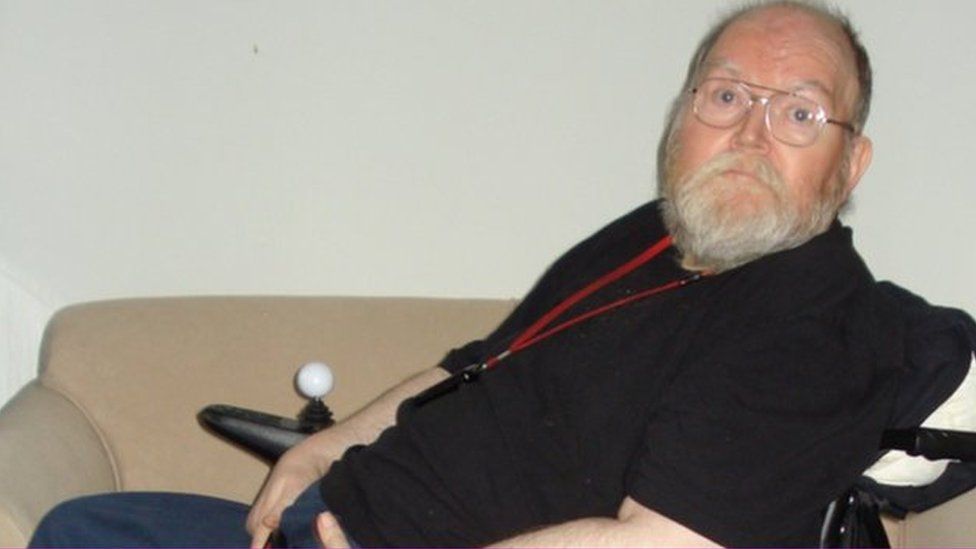Gordon Ross launches appeal over 'right to die' guidance
- Published

A severely disabled man has launched a fresh bid to get legal guidance issued in Scotland regarding assisted suicide.
Gordon Ross, 66, who suffers from degenerative Parkinson's disease, is concerned that anyone who helped him end his life would face prosecution.
He wants the Lord Advocate to issue guidelines in the way the Director of Public Prosecutions has for England.
A judge rejected his case in September. His appeal is being heard by three judges at the Court of Session.
Mr Ross, a former TV producer, who lives at a care home in Glasgow, did not attend the hearing in Edinburgh as he was too ill.
'Dignified suicide'
Mr Ross brought his case for a judicial review to the Court of Session in Edinburgh in May.
He wanted Scotland's most senior prosecutor, the Lord Advocate Frank Mulholland QC, to set out guidance on what circumstances he would take into account before deciding whether to prosecute somebody who had helped another person end their life.
His QC, Aidan O'Neill, had argued that under the European Convention on Human Right there was a substantive right to "a dignified suicide".
Gerry Moynihan QC, counsel for the Lord Advocate, said there was no proper foundation in law for the outcome that was being sought.
In a written judgement issued in September, Lord Doherty ruled that the current Crown policy was legal and did not breach the European Convention on Human Rights.
Mr Ross's appeal is scheduled to last two days before the Lord Justice Clerk, Lord Carloway, sitting with Lady Dorrian and Lord Drummond Young.
Lord Carloway asked Mr O'Neill QC, what "precise mechanism of assisted suicide" Mr Ross had in mind.
Mr O'Neill said: "He is not at the stage of formulating positive ideas as what means of assistance he might require."
'Informed choices'
The counsel said he was in a situation where he was physically deteriorating but remained mentally alert.
He said that Mr Ross wanted to get guidance, such as that offered by the director of public prosecutions in England and Wales, and in the light of that "to make his informed choices".
"This is to do with how the Lord Advocate sets out in public terms how he will exercise the discretion he is undoubtedly given under the law. We say he is required to produce guidance specific to the issue," said Mr O'Neill.
"What I am attacking is the uncertainty of how the law will be applied by the Lord Advocate in the exercise of his discretion," said the QC.
"He can't just say it depends on the facts and circumstances. He has to give an indication of the facts and circumstances that would be relevant to what is taken into account.
"This case is about how the prosecutorial authorities will exercise their discretion," he told the judges.
Mr O'Neill argued that the position taken by the Lord Advocate currently was the same as that of the director of public prosecutions before a court case which found it not the be compatible with the European Convention on Human Rights.
- Published8 September 2015
- Published14 May 2015
- Published14 May 2015
- Published4 June 2014